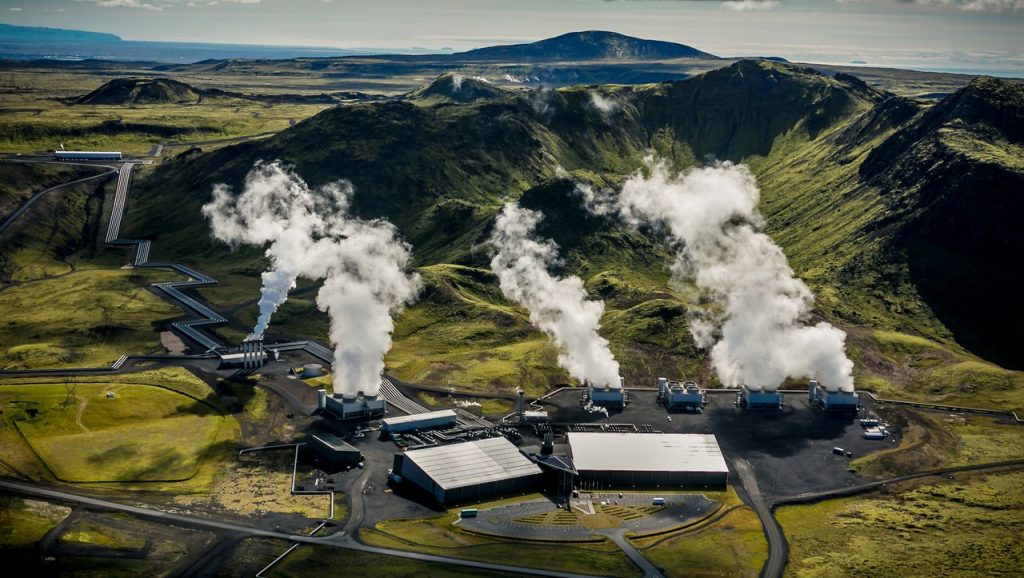Climate neutrality by 2045 – that’s it new target Federal government. To achieve this, emissions in all sectors of the economy and in the transportation sector as well as emissions in private homes must decrease. Concrete measures will be bitterly contested after the general election at the latest. In addition to avoiding greenhouse gases, the active removal of carbon dioxide from the atmosphere could also contribute. This applies above all to emissions that cannot be prevented, for example from air traffic.
This is what is really in the removal of carbon dioxide from the air Lots ideas:
-
The direct extraction of carbon dioxide from the air and storage in the ground,
-
massive reforestation programs or
-
Spread of some fine terrestrial rocks, for example on agricultural land.
-
Then there is Bioenergy with Carbon Capture and Storage, or BECCS for short. The plants are grown in huge fields and later burned in power plants. The resulting carbon dioxide is captured and stored underground.
Most of the scenarios can actually only be achieved with the help of such negative emissions. This applies to the 1.5-degree target of the Paris Climate Agreement and the many scenarios that outline the path to achieving at least the two-degree target. At times, references to technical solutions to removing carbon dioxide from the atmosphere, as well as opponents of a more radical climate policy, seem to be an argument in favor of continuing as is.
But when it comes to climate protection, is there a difference between a ton of CO2 being saved and therefore not created at all, compared to a ton previously emitted but later removed from the air with technical aid? A current study by a team led by Kirsten Zickfeld of Simon Fraser University in Burnaby, Canada has been published. In “Nature Climate Change” magazine, at least suggests that although some questions remain unanswered.
The researchers concluded that removing carbon dioxide from the atmosphere could have a less powerful impact on the development of climate change than avoiding emissions. For their work, the team used a computer model and looked at how the carbon cycle on Earth changes when a large amount of carbon is added or removed. Scientists took ten to a hundred times the current annual global emissions from the system in one go – or added the amount in addition. They then compared the evolution of simulated carbon dioxide concentrations and temperatures over 1,000 years.
Reducing emissions as a ‘means of choice’
The CO2 concentration showed that CO2 removal was less effective than increasing. This means that balancing CO2 emissions with negative emissions can lead to a different climate outcome than avoiding these CO2 emissions altogether. However, for the average global temperature, the result was partially reversed: in scenarios with high withdrawals or emissions, a ton of CO2 removed was more important than a ton of CO2 saved. The researchers do not comment on the reasons for the difference.
“Obviously the way to choose is to reduce emissions, which should be expedited significantly,” commented researcher Judith Hooke of the Alfred Wegener Institute for Polar and Marine Research (AWI) in Bremerhaven, who was not involved in the study. Passive emission techniques are fraught with a great deal of uncertainty, especially with regard to unwanted side effects. “In addition, for now and for the foreseeable future, they are not available at the scale at which they were tested in this article, for example.”
Researcher Oliver Gidden of the Foundation for Science and Policy in Berlin, who was also not involved, commented on the findings: “You might be tempted to interpret the study as an argument against net negative emissions or even CO2 removal per se. But the study’s finding, that under certain conditions, Very large amounts of CO2 withdrawn are not as efficient as the same amount of CO2 emissions, it can also be interpreted in another way – we need to withdraw more CO2 than would be expected to determine CO according to Gidden, not because of the potential for negative emissions in The distant future that humanity still exports a lot even today.

“Total coffee aficionado. Travel buff. Music ninja. Bacon nerd. Beeraholic.”







More Stories
Researchers detect extremely high-energy gamma rays
Anxiety disorders in old age increase the risk of dementia
Researchers are particularly fascinated by these exoplanets.